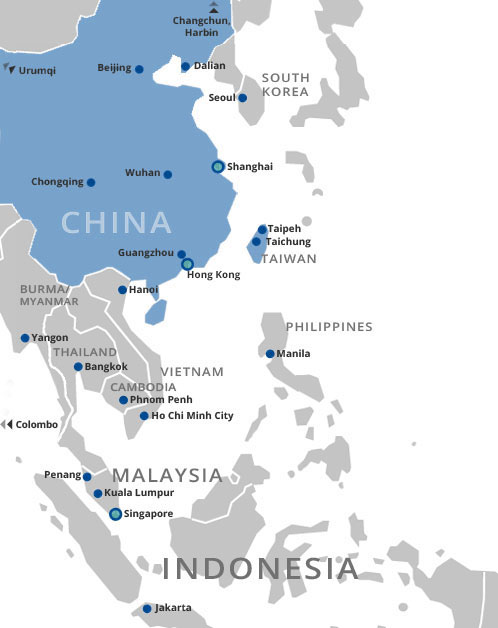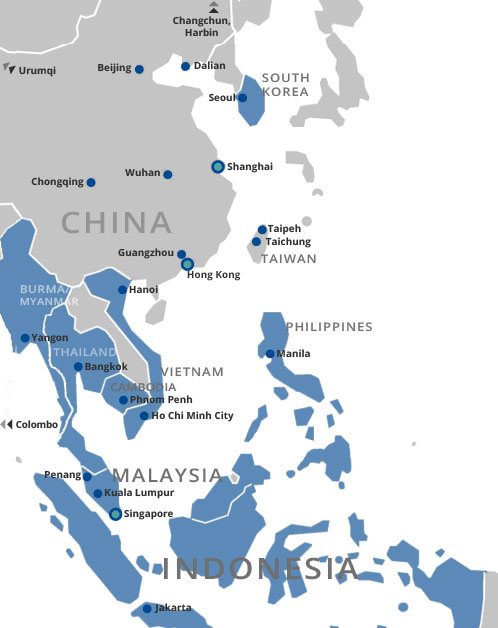Source: Reuters, Jun 03, 2016
As China shops for German firms, one early example reassures
* Putzmeister one of the first prominent takeovers by the Chinese
* Deal gave Sany access to western markets, premium brand
* Sany has kept Putzmeister on a long leash
* Language, cultural differences pose biggest hurdle
By Caroline Copley
BERLIN, June 2
As Beijing moves in to buy up firms from Germany’s famed “Mittlestand” of mid-sized manufacturers, politicians are nervous that Chinese owners may take their vaunted technology and move jobs abroad.
But one of the first prominent mid-sized German engineering firms to sell out to the Chinese says such fears are overblown.
When Putzmeister, a 58-year-old maker of pumps for concrete, was bought by its Chinese competitor Sany for 360 million euros($402 million) in 2012, its workers protested outside the factory gates, fearing job losses.
Four years on, however, the company’s employment in Germany has held steady and it has promised to maintain it at least until 2020. Sales are up by nearly a third, the brand is still intact and established relationships with suppliers have been left in place.
With the Chinese back for more acquisitions, the four-year-old merger is again drawing attention, this time as an example of how to sell out while safeguarding operations at home.
In headlines from the latest Chinese shopping spree, home appliance maker Midea Group made a $5-billion bid for German robot maker Kuka last month, and Fujian Grand Chip Investment Fund agreed to pay 670 million euros for semiconductor manufacturing equipment maker Aixtron.
German economy minister Sigmar Gabriel signalled politicians’ unease this week, saying he would like to see a rival offer for Kuka from a German or European firm.
Putzmeister executives remember similar worries. Before their company went up for sale, sales had only begun recovering from the 2009 global financial crisis.
The suitor, Sany, from China’s southwestern Hunan province, had itself overtaken Putzmeister as the global market leader for concrete pumps, mostly by selling cheaper pumps to Chinese customers. It was easy to imagine the Chinese firm following the merger by taking German designs and shedding German jobs.
But Putzmeister’s German Chief Executive Gerald Karch insists that was never the plan.
“The strategy was and is the strict preservation of brand and corporate identities at both firms,” he said in an e-mailed response to questions.
Since the takeover, rather than shift production to China, Sany has divided up the market, selling its own pumps in China and the German firm’s pumps in the rest of the world. Putzmeister pumps still come with German-engineered parts sourced from its previous suppliers. The German firm acts as the global distribution hub for the combined company.
“There are positive impulses there,” said Frank-Christian Raffel, Munich-based partner in boutique advisory firm MelchersRaffel, which specialises in M&A deals between German-speaking and Asian countries. “Evidently it is being well run by the Chinese.”
With employment at the company’s factories in Germany holding steady, the workers who picketed against the merger four years ago now say they are more fortunate than they might have been had a buyer arrived from elsewhere.
“I think if it were an American company, it would be a lot worse for the workforce,” said Joerg Loeffler, head of the works council at Putzmeister.
Nevertheless, although the merger appears to have been mostly a success in terms of sales and employment, the company acknowledges it may still take years to unite two very different corporate cultures and realise all the benefits of linking up.
PLASTER MASTER
Putzmeister, whose name means “plaster master”, is an example of how Germany’s small and medium-sized manufacturing sector produced “hidden champions” that excel as world leaders in niche markets, a path that turned Germany after World War Two into Europe’s powerhouse of export-led manufacturing.
The company’s colossal truck-mounted cranes helped build the world’s tallest building, the Burj Khalifa in Dubai, and were sent to pump millions of litres of seawater to cool Japan’s tsunami-wrecked nuclear reactor in Fukushima in 2011.
But it was hit hard by the financial crisis, when sales plummeted from 1 billion euros to 440 million, allowing Sany to snatch the crown of world leader in 2009.
One aim of the merger was for Putzmeister to help Sany gain a technological edge over rivals by improving quality at its own production sites. To this end, joint projects were set up and engineers exchanged to facilitate the transfer of know-how.
Following the takeover, the companies also expressed a desire for some co-operation in the procurement of parts, and raised the possibility that Sany could supply some of Putzmeister’s components.
But while Putzmeister has helped Sany purchase some parts, such as hydraulic components from German supplier Bosch Rexroth, it has kept its purchasing strategy and supply chain unchanged to maintain its reputation as a premium brand.
PR CAMPAIGN
Concerns about a deterioration in quality due to Putzmeister’s new owners were allayed by intensive PR work with customers, according to Cora Jungbluth, from the Bertelsmann Stiftung charitable foundation, who carried out a case study on Chinese takeovers of German firms.
Over in China, the firms initially operated a two-brand strategy. However, Putzmeister has since removed its pumps from the Chinese market, saying Sany’s products enjoyed a “good reputation” there. Putzmeister said it continues to take advantage of Sany’s distribution network to sell its concrete-spraying machines, which Sany doesn’t have in its portfolio.
By agreeing last year to guarantee jobs until 2020, Sany also managed to win over Putzmeister’s workers. The German firm’s global workforce has remained stable at 3,300 and there have been no noticeable changes for those working in its German factories.
Thomas Heck, Head of PwC’s China Business Group, said that so far German firms’ experience with Chinese investors has shown that the overwhelming majority are less focused on quick financial profits and more on long-term strategic goals.
“They really want to go global and gain a foothold in developed markets and are aware that this might take even a decade,” Bertelsmann’s Jungbluth added.
Despite Sany’s willingness to keep Putzmeister on a long leash, there have still been challenges to overcome, notably in marrying corporate cultures. Few of Sany’s Hunan-based employees speak English.
Norbert Scheuch, Putzmeister’s chief executive from 2009 who negotiated the merger, left the company a year after the deal. He told Reuters he had frequently become frustrated with his new bosses’ hierarchy-driven management style, which he said slowed down decision-making and thwarted his efforts to make acquisitions.
Joint projects were complicated by a Chinese culture that privileged rank over expertise, he told Reuters, contrasting it with an expectation from German managers that their knowledgeable subordinates will speak up.
Unable to make small talk in Chinese, Scheuch said he often felt shut out of decisions. He described himself as the “party pooper” forced to temper Sany’s initial over-optimistic expectations for growth in Europe’s saturated markets.
Putzmeister says current CEO Karch has built up a good basis of trust with Sany’s billionaire founder Liang Wengen, a son of Hunanese peasants who rose to become at one point China’s richest man.
But the company acknowledges that more time is needed for the integration to succeed on all levels and in all countries.
There are signs that future Chinese investors are becoming more savvy about foreign takeovers and the need to understand the local culture, says M&A adviser Raffel.
“The Chinese are very willing to learn nowadays. I know investors that have bought German companies and are now holding workshops in China on how the German Mittelstand works.” ($1 = 0.8957 euros) (Editing by Peter Graff)
Link to original article here







